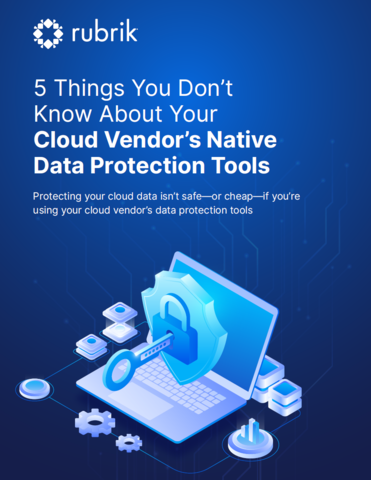The data privacy vs convenience conundrum

Brian Pagano at Axway explains why it pays to give digital consumers more choice and control over how their data is used
As digital life accelerates, consumers are becoming increasingly anxious about data security and privacy issues – including how and why firms use the personal data they collect.
A recent Axway study conducted with 1,012 UK consumers found 85% were concerned about the privacy and security of their online data, and almost 75% went on to say that companies are not sufficiently transparent about how they handle their data.
Following the introduction of regulations like GDPR, consumer awareness about the amount of personal data companies collect about them, and their rights where consent and data erasure is concerned has been steadily rising.
But the sudden shift to digital triggered by the pandemic has turbo charged people’s digital trust anxieties. Propelled at speed into an ever more connected and digital-first world, today’s digitally savvy consumers increasingly expect to encounter best-in-class digital experiences that don’t put their data, identities, or privacy at risk.
As a result, more consumers are looking at privacy settings and how companies process their personal data. Brands that fail to understand this will pay the price as consumers switch to companies and providers that do more to protect their customers’ sensitive data – and disclose what information they need consumers to share, and why.
Data privacy – a double-edged sword
Changing consumer attitudes to data privacy are proving challenging for businesses that place great value on the data they collect about their customers.
Using this information they can target advertising, predict market trends and enhance their products and services. But customers see things differently. They don’t understand why companies need to collect so much personal data about them.
Plus, they are worried their private data will be compromised if companies don’t have strong data protection measures in place. So much so that 82% of UK consumers would stop doing business with a company if it suffered a data breach that exposed their personal information.
So while data may be the currency that powers digital transformation, data security, confidentiality and integrity, is becoming essential for any organisation that wants to ensure its business models are fit to perform in the digital economy.
Indeed, the ability to cultivate digital trust is fast becoming a key competitive differentiator. So much so that, according to IDC research, by 2025 more than a third of organisations will have replaced Net Promoter Scores with digital trust indices.
It’s time to get off the sidelines
Don’t believe me when I say data privacy is already a commercial imperative? Meta CEO Mark Zuckerberg recently announced how the privacy changes Apple made to its iOS platform last year will cut $10 billion out of Meta’s earnings in 2022. Now Google says it too plans to limit data tracking on its browser and extend privacy-preserving features to cover apps on its Android-based smartphones.
Every business needs to sit up and act now, because the most trusted, transparent, and ethical brands will win the loyalty of consumers – and their data. Those that fail to adjust their data management and security practices to the realities of operating in a 21st century digital world will fall by the wayside.
Trouble is, delivering the frictionless and integrated online and app experiences today’s customers want depends on having access to their personal data. So how do you balance convenience and security in a way that is commercially and ethically sustainable?
Ensuring that privacy and security don’t introduce friction
Eliminating friction is the holy grail of delivering a great CX and our research shows that customers are pragmatic when it comes to self-service convenience and gains that come from sharing their data.
Half the UK consumers we surveyed agree it’s worth giving companies access to their personal data if it results in a better user experience. But in doing so, they need to trust that companies will do the right thing when it comes to protecting that data – and only collect the data that’s necessary to fulfil their needs and desires.
So what steps should organisations take to build this trust, without compromising on the delivery of great digital experiences that inspire customers to return time and time again?
1. Give customers greater choice and control
Consumers value opt in/out options on mobile apps and websites that let them determine what and how much data they are prepared to share and don’t view it as an inconvenience. Over a quarter (27%) of UK consumers said they’d opt into app tracking, with a further 50% saying they’d allow it if given the option to opt out at any time.
For companies that want to collect data in an appropriate and privacy-friendly manner, consent and granular permissions are the base foundation stones for building digital trust.
2. Be transparent about how data will be used – and by whom
Companies need to be open about why they are asking customers to share their data, and they need to explain this in easy-to-understand terms. Consumers can smell a ‘check-box’ exercise that pays lip service to data privacy compliance from a mile off.
By setting out clearly what the goals of the data collection process are – you’ll get a faster, more personalised service – together with a link containing a deeper dive into legal statements – consumers are more willing to provide the data brands need to deliver a great CX.
3. Think about customer intent when deciding what data resources to collect and hold
Organisations need to take a long hard look at what customer data they collect and why, and how long they hold it for. Far too many organisations view Big Data as the answer to everything, but all too often fall into the trap of the ‘Collector’s Fallacy’ – hoarding data that feels more useful than it actually is.
Does knowing someone’s age, marital status, gender, historical preferences and location or browsing history really tell you about their intentions right now?
All too often organisations have accumulated huge volumes of historic and highly personal customer data that is no longer relevant or ethically appropriate. As well as putting them at huge reputational risk should this data be exposed or inappropriately shared, storing all this data comes with a significant cost.
When it comes to acting in an ethical way that is also commercially beneficial, firms should instead focus on the key questions: why are customers using our mobile app or website, what are their primary interactions – and what real-time data points and insights will we need to execute in real-time and deliver against these wants and intentions?
4. Leverage technology to give customers piece of mind
Companies have a golden opportunity to build trust, so the average consumer doesn’t need to concern themselves with these details. For example, by taking steps to ensure their debit and credit card details are never captured or stored – or filtering out their social security and national insurance details – firms can instil confidence in customers that their highly sensitive personal data won’t be put at risk.
Ultimately, customers want to know they’ll get a great experience and won’t need to worry about an organisation’s security or their privacy. And today’s API management platforms make it possible for organisations to deliver these excellent experiences at scale, without running foul of customer privacy and security expectations.
By enabling companies to implement privacy and security audit trails and regulatory and compliance frameworks, API management platforms streamline the delivery of digital services, while ensuring that mobile apps have the right security in place to protect sensitive data and applications at the interface, access, and data levels.
Taking a more ethical and responsible stance
Data security, privacy, and the delivery of a frictionless user experience aren’t incompatible. As organisations are finding to their cost, you won’t win in the digital world by being secretive about the data you collect and what you do with it.
Using data responsibly and giving customers greater agency and control over how much data they are prepared to share – and who with - will define who thrives and survives in the digital economy and who does not. Similarly, organisations will need to take an inward look at the personal customer data they collect and why, analysing their own business ethics when it comes to data collection.
Finally, creating customer trust depends on simplifying data security and governance and connecting people, apps, and systems in a way that streamlines the delivery of great digital experiences that are mutually beneficial to organisations and their customers.
Brian Pagano is Chief Catalyst and VP at Axway
Main image courtesy of iStockPhoto.com

Business Reporter Team
Most Viewed
Winston House, 3rd Floor, Units 306-309, 2-4 Dollis Park, London, N3 1HF
23-29 Hendon Lane, London, N3 1RT
020 8349 4363
© 2025, Lyonsdown Limited. Business Reporter® is a registered trademark of Lyonsdown Ltd. VAT registration number: 830519543





